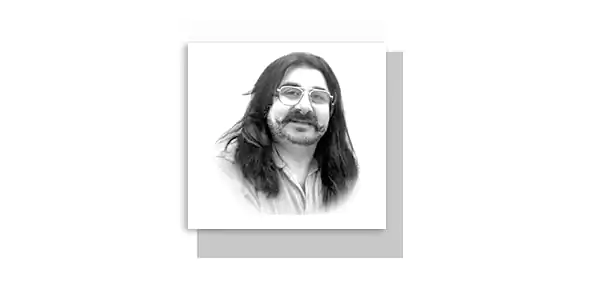THE PPP and PML-N have historically been strong rivals, mobilizing voters against each other during elections. While PML-N has roots in Punjab and PPP in Sindh, both parties are powerful in their respective provinces. Bilawal understands how to rally his voters against the PML-N, especially given the forecast that PTI won’t regain power in the 2024 elections. Interestingly, ahead of 2024, politicians who had left PPP for PTI in 2018 are now joining other parties like the Istehkam Pakistan Party (IPP) in Punjab and PTI Parliamentarians (PTIP) in KP. Despite PPP potential, it isn’t the establishment’s favourite for post-2024 arrangements, prompting Bilawal’s focus on PML-N, aware that Nawaz Sharif is favoured by the Establishment.
In the realm of politics, no party is confined to any particular province. Every party leader holds the right to campaign in any region to secure more seats. The PPP can also do the same. Bilawal has said that Nawaz Sharif need not go to other provinces and should pay attention to Punjab province only. I believe that for stronger federation all the political parties should be national level parties. Regional and provincial level parties always damage political chemistry and myth of the Federation. All the political parties should have their representation in the entire country. Pakistan is facing serious challenges because of regionalism in politics. Regional, sectarian, linguistic or sympathy cards should not be played. Is Bilawal not appearing in political processions in KP? So much so Sindh, KP and Balochistan based nationalist parties have equal right to go any part of the country. If MQM or any other party can show political power in Punjab or any other province who can object? Politics is indeed a game of power acquisition.
Before elections, PMLN and PPP will remain political opponents. They were coalition partners against the PTI. But in elections they are struggling against each other for next government. This is typical style of politics in South Asia. Till date Nawaz Sharif is the choice. Post May 9 incidents PTI is out from power circles. As compared to PMLN in Punjab at this stage PPP in Sindh and PTI in KP are weaker parties. The PMLN is in good position in Punjab and Balochistan. The Balochistan-based parties have joined the PMLN. The MQM, GDA, PMLF and other nationalist parties from Sindh, JUI and ANP from KP will be with the PMLN. So the PMLN position is stronger. It is the stage of political survival of the PMLN and Nawaz Sharif.
At this stage Nawaz is the choice. In the past he has been entangling with establishment but this time he knows that if he does not remain cool he will be replaced as Imran was replaced through no confidence motion. Imran Khan, a former protégé of the Establishment, fell foul of the military establishment when he directly got involved in May 9 tragic incidents. Now in jail and facing multiple charges, Imran is likely to remain there until the national and provincial elections conclude. His political rival and nemesis, Nawaz Sharif, once labeled an absconder, has returned to the country after a four-year self-imposed exile in London. Granted bail before his return, the former Prime Minister arrived in Lahore on October 21 under VVIP protocol, accompanied by a large number of supporters from his Pakistan Muslim League Party. He pledged to rejuvenate his party’s and the country’s stagnating fortunes.
The fortunes of the dramatis personae—two former Prime Ministers and a general and the supporting cast—have changed dramatically in the past few years and might change again in the near future. How this will change the fate of the country remains the big question as Pakistan heads for elections next year. National and provincial elections are scheduled for February 8. Two days later, Imran and his close aide, former Foreign Minister Shah Mahmood Qureshi, were indicted by a special court under the Official Secrets Act for leaking a confidential document to a foreign media outlet. The plan to keep Imran out of the political reckoning also became clear from a September interview of Caretaker Prime Minister Anwaarul Haq Kakar.
Free and fair elections could take place without Imran or hundreds of members of his party jailed on charges of unlawful activities such as vandalism and arson. Those in Imran’s party who did not participate in the protests following their leader’s arrest would be allowed to contest the elections. A number of senior leaders of the PTI were arrested when they held a countrywide protest on May 9 against Imran’s arrest on corruption charges in the Al-Qadir Trust case.
Nawaz Sharif was also thrown out of power on engineered corruption charges initiated by the then Establishment when he began to assert himself as the Prime Minister. Once again a three-time prime minister, has once brought back to revive his party the PML(N) and distorted economy of the country, which has badly shrunk in the past years under Imran’s growing patronized hybrid politics and influence in the country.
—The writer is editor, book ambassador political analyst and author of several books based in Islamabad.
Email: [email protected]
views expressed are writer’s own.










